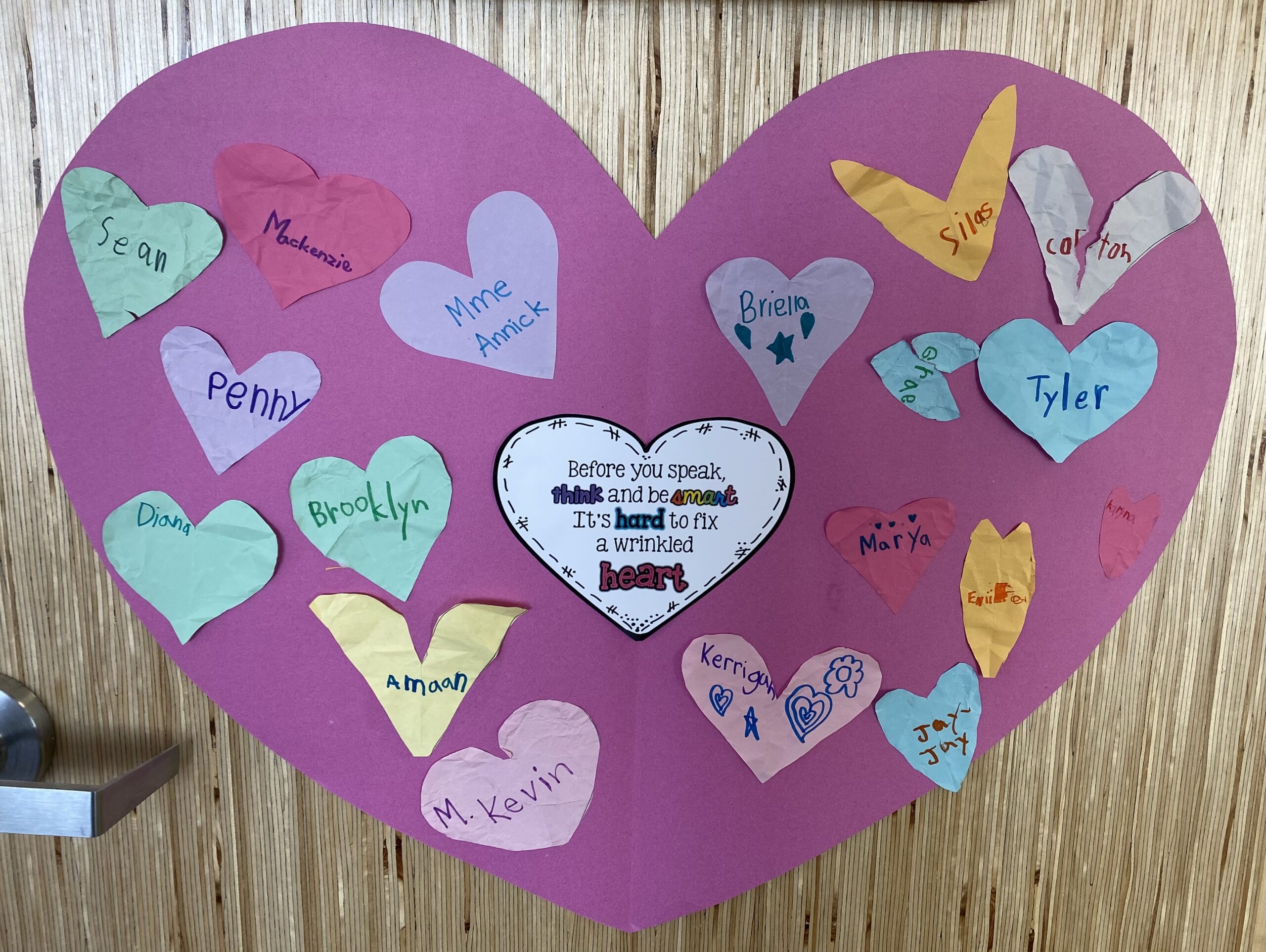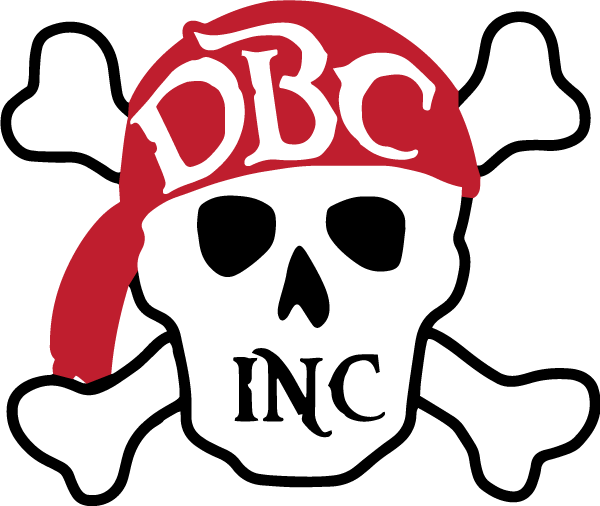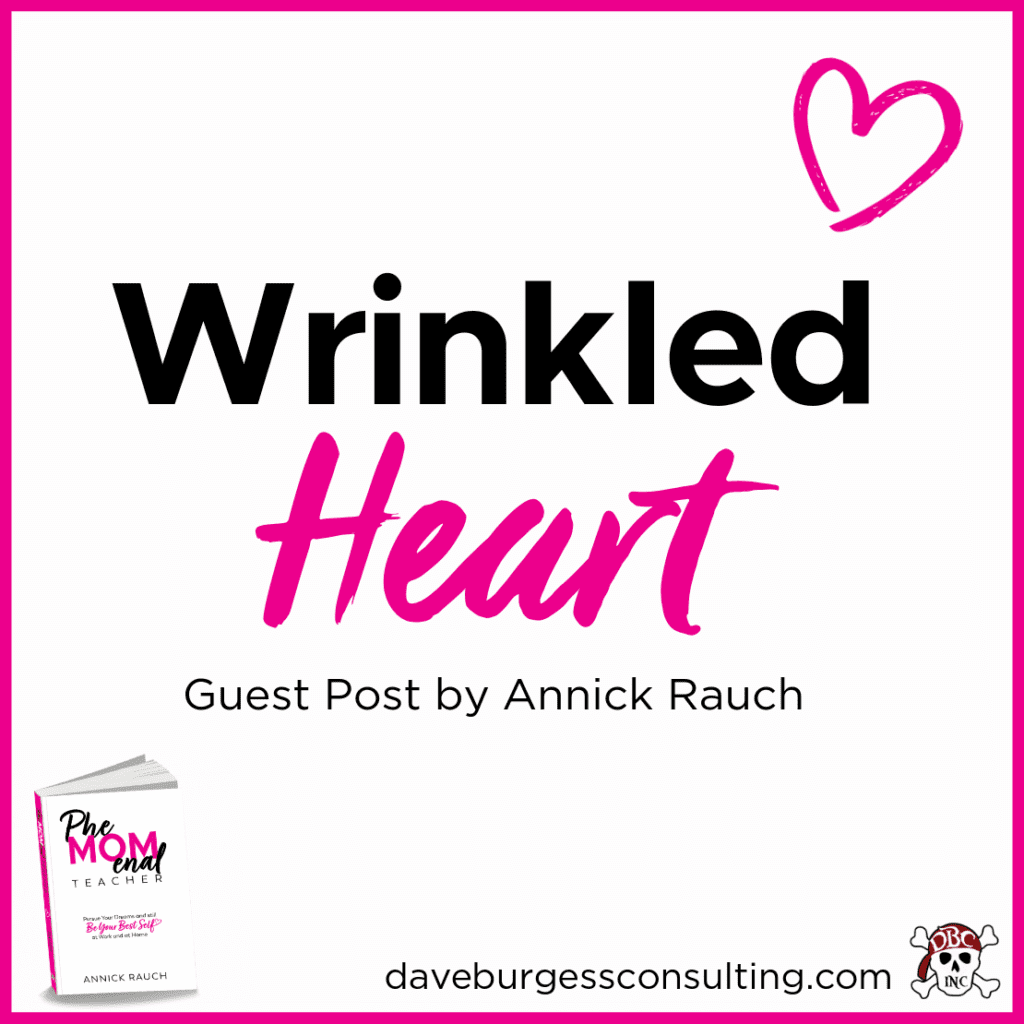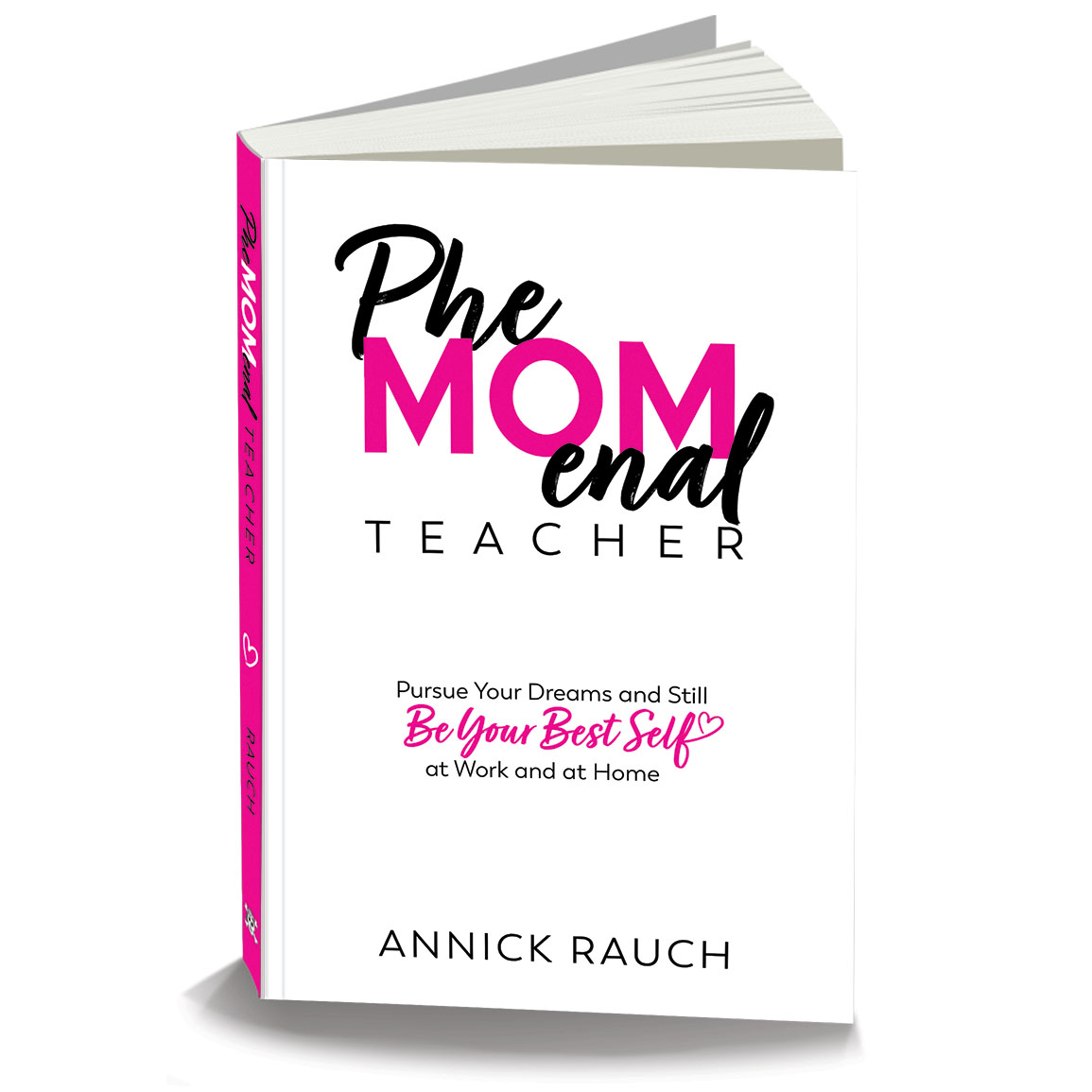Today's Sunday Special is written by a passionate grade 1 French immersion teacher who absolutely loves to incorporate students' interests and passions into her learning setting--Annick Rauch. She is also the author of our latest Amazon Number 1 New Release, PheMOMenal Teacher!
Outside of school, Annick is a very busy mom. She and her husband, Chris, have four energetic boys and a silver lab named Ellie.
Take it away, my friend!
Guest Post by Annick!
Your words matter.
To others.
And to yourself.
But being mindful of this isn’t necessarily an innate skill. It’s learned from a very young age, and habits are hard to break.
Watching the documentary Heal on Netflix was completely eye-opening and also reaffirmed some of my beliefs. While I don’t agree with everything shared in the film, some messages definitely hit home for me. This documentary explores how the mind is a powerful force that can and will heal the body under the right circumstances. It also made me pause and reflect on how powerful the mind is as a whole, which I believe we undervalue, especially when it comes to its correlation with our overall health.
Mental health has become an increasingly popular topic over the years, and for good reason. I’ve always been a firm believer that there’s no health without mental health, but until I watched Heal, I don’t think I truly understood at what depth our mental health can affect our physical health. In the documentary, a woman seemed to be doing everything right to take care of her mental and overall health, but after she got very sick and dug deeper, she realized that her mind wasn’t in a healthy state after all. Once she peeled back the layers, she discovered things from her past that were still causing her a great deal of pain. I found this fascinating, and it resonated, as I’ve had moments similar to this, where I realized that things I had buried so deep that I didn’t even know they existed still haunted me, affected me, and hurt me.
Although I had so many takeaways from this documentary, I was left with more questions than answers, and I longed for time—time to take care of myself, time to try different things to boost my mental health, time to peel back the layers to see what I could discover, time to heal, time to reflect, time to consider what I am teaching my boys and my students, time that, no matter the circumstances, I’d never have enough of. So, instead of getting overwhelmed with all of these new ideas, I decided to focus on one, just one: the impact of our words.
This is something that inevitably comes up every school year. Students (and my own kiddos at home) are not only unkind with their words to each other but also often to themselves. The negative self-talk starts to creep in, feelings get hurt, and I want to address it as soon as possible in a way that will be a bit less abstract for them. I’ve adopted an idea that I got from my best friend and colleague, Nycol Didcote, which I find to be super powerful.
- I start off by reading the book Words and Your Heart by Kate Jane Neal. (This book is available in French, too.) We discuss how our words can hurt and tear down, or uplift and make the world a better place.
- I invite the students to each cut out a heart from colored paper.
- We sit in a circle with our hearts in our hands, and I explain that we are going to say things we don’t mean right now, just to learn what happens when we aren’t kind with our words.
- We go around in a circle and say something mean to the person sitting next to us, at which point I ask them to crinkle up their heart. We continue until we’ve finished going around the circle and everyone’s hearts are crinkled up in a ball.
- We then discuss what we’d typically do after we’ve been hurtful; we’d apologize.
- We go around the circle again, apologizing while students unwrinkle their hearts.
- Finally, we have a discussion about what we notice. Are our hearts exactly the same as they were before the hurtful words? Does saying sorry make everything completely better by erasing what took place? No. Our hearts have been impacted, and there is no going back to before, even with an apology.
- We continue on by discussing how we need to be mindful of our words and how we should choose to be kind and uplift others. This is just as important when we’re talking to ourselves as when we’re talking to others.
- The final step is for students to glue their hearts on a bigger heart, which includes the quote “Before you speak, think and be smart. It’s hard to fix a wrinkled heart.” I post this visual on our classroom door for a daily reminder of the lessons we learned through this activity.
Click here to save and print the Wrinkled Heart graphic.
I’d love to hear how you help your students and children understand the power and impact of their words. Please connect with me using the links below.
- Annick


Thank You, Annick!
Thank you!!
If you like what you've learned, please share on social media, tag us, and use the hashtag #SundaySeven.
Once again, follow Annick on Twitter. You are sure to be inspired by her posts.
Also, if you haven't grabbed your copy of PheMOMenal Teacher, you are really missing out! Grab your copy today by clicking HERE and for the Canada Amazon link click HERE.


